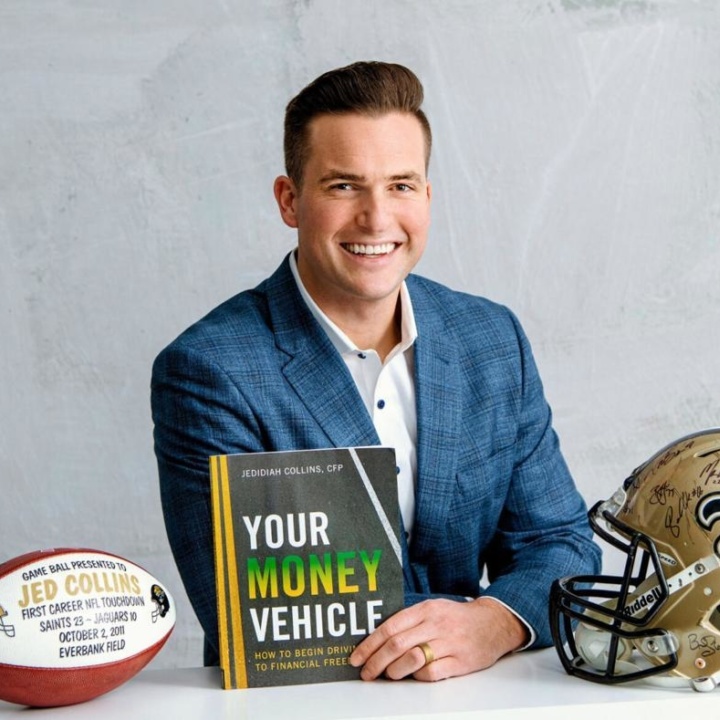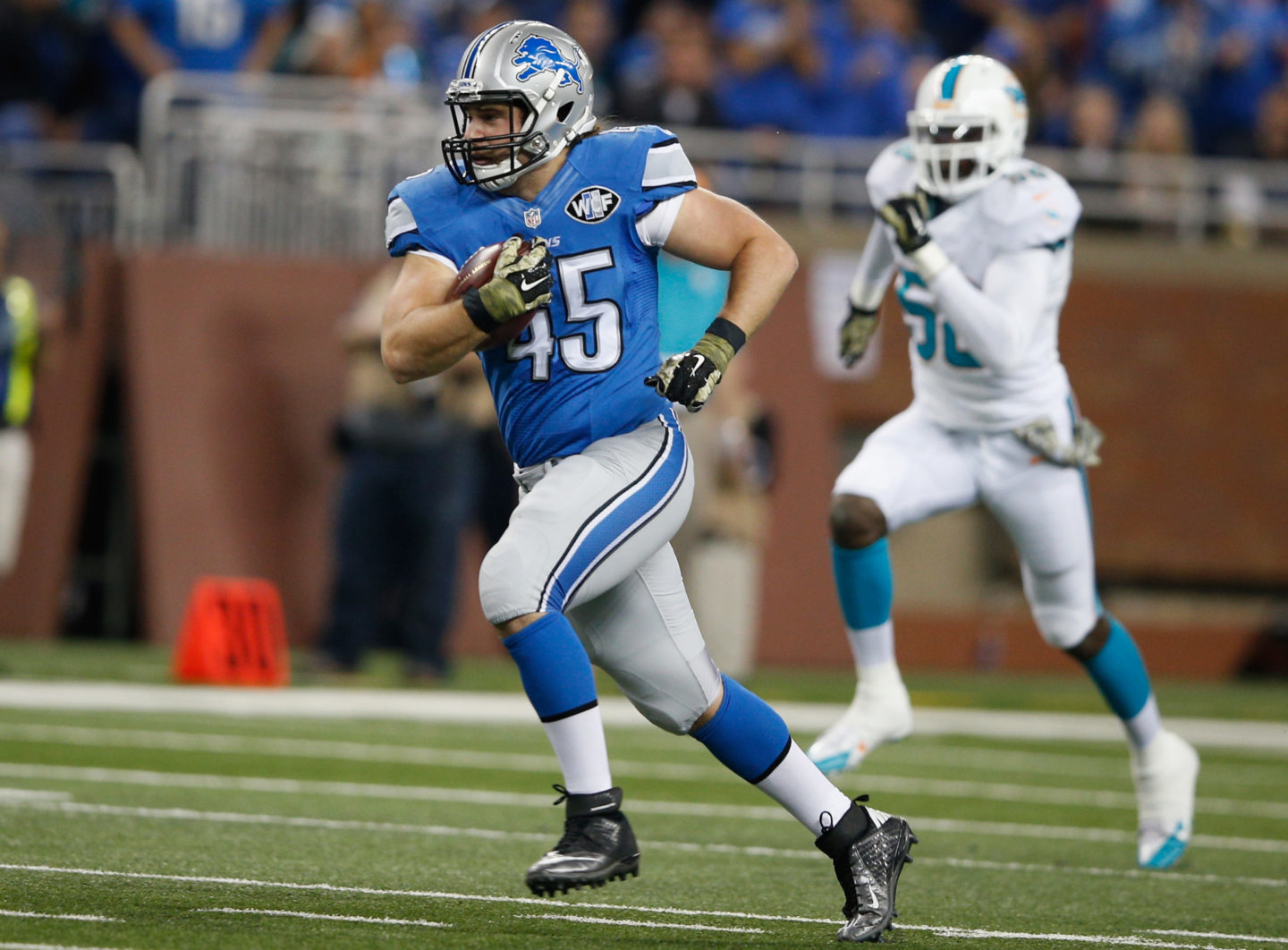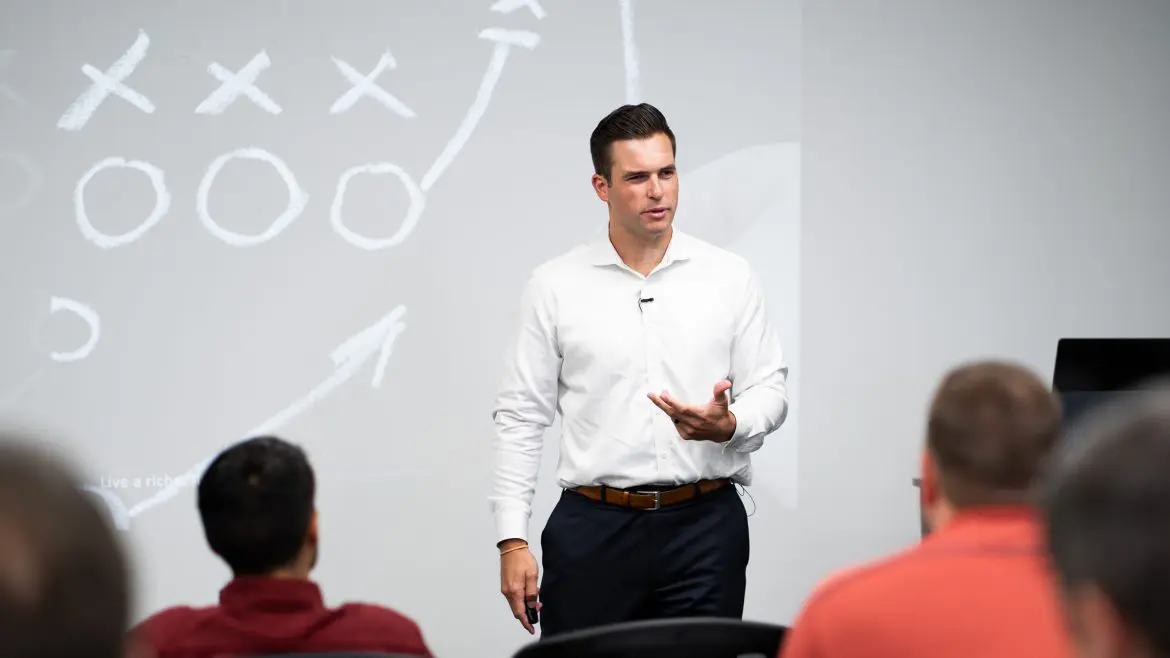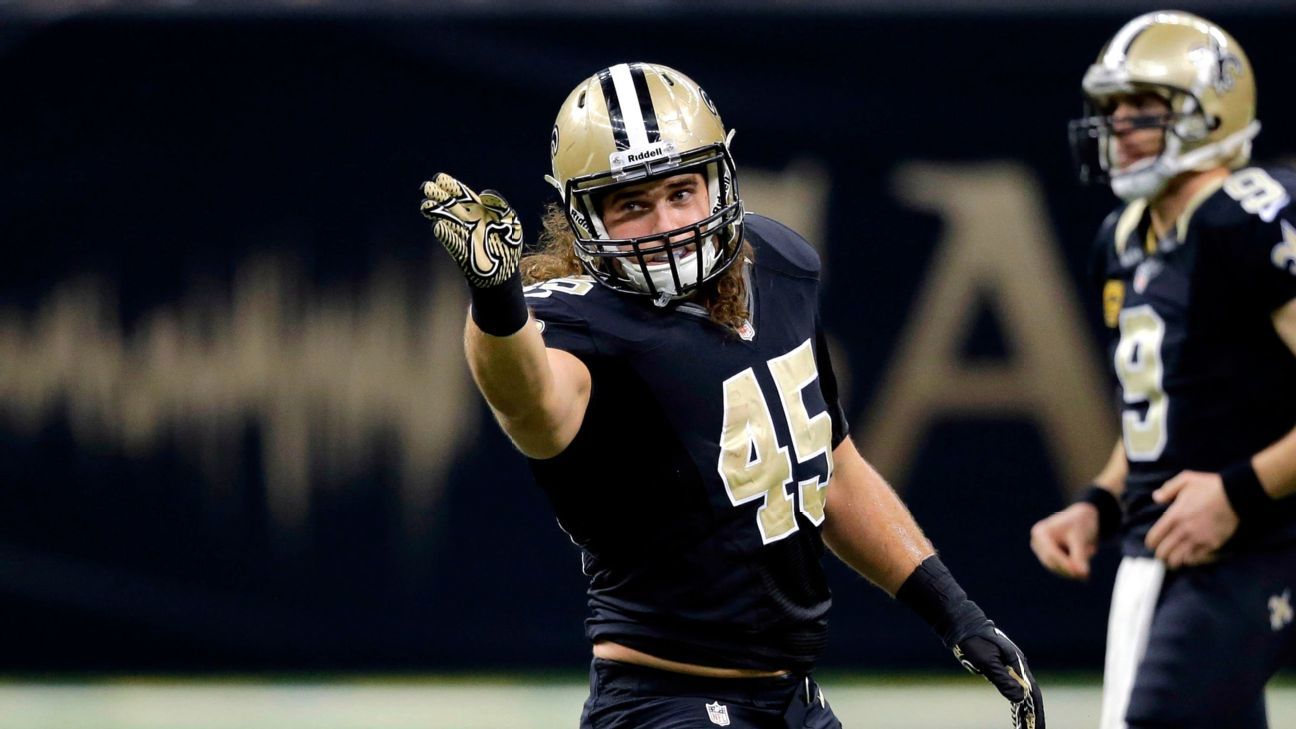
Catching Up with Former Player Rep: Jed Collins
A former NFL fullback, Collins played 5 seasons between the Saints, Bears, Chiefs, Browns and Titans. He also had a successful collegiate career at Washington State University where he owns a school record for passes caught by a tight end. We caught up with the Former Player Rep turned CFP and he gave us insight into his life during and after football.
What are you doing now in your career?
I currently work from home and because I am virtual, I can work with locations in 7 states. A little bit more of what I do is Money Vehicle, which is a financial literacy curriculum that is integrated with high schools across the country. We are currently seeing a massive shift for financial literacy and personal finance to be on the core curriculum to graduate. There are few good free content options available but as far as a true semester-long curriculum, Money Vehicle is one of the very few that offer those resources. Day to day we are collaborating with teachers; training and supporting them while ensuring we are working to have the best program on the market.
What is your favorite part of your job & why?
My favorite part without a doubt is seeing students from the past. Whether it is an NFL player, a 16-year-old high schooler, or someone I educated in a workshop, who comes up to me months/years later and tells me what they took from Money Vehicle and how they applied it later. The impact that we are having is what drove me to the financial services industry. What gave me the confidence to leap from being a financial advisor wealth manager with a noticeably clear paved path in front of me and a much better income stream; to being an entrepreneur chasing financial literacy and a company with a unique mission. To see that we are changing the mindsets and behaviors of high school students across the country is truly a vision come to life. Recently, my former teammate Thomas Morstead came up to me after a workshop and mentioned he remembers me talking about this ten years ago in the locker room. I told him it has been a long journey but along that journey, we have empowered thousands and hopefully millions of students soon enough.
What was your experience like as a player rep?
I loved being a player rep. The biggest thing is having your teammates look at you for clarity in their journey. Being a money guy myself, I was very attuned to the benefits conversations, and I loved explaining why the 401K is so great. I loved having the authority because I was in the rooms and educating myself. I loved being in the same room with guys who saw the game of football as their springboard and not their destination. As a player rep, you walk into those rooms and with men who are going to become businesspeople, entrepreneurs and potentially billionaires. They are not looking at what the game is giving them, but they are looking at what and how they are going to use the games longevity. I welcome the opportunity to be back around that environment and even though I am a no-name practice squad individual I believe I can help guys if they have questions. My experience as a player rep was phenomenal and truly to this day those who I met at rep meetings are the ones I stay in contact with due to us being like-minded.

How did being a player rep impact you personally and professionally? And what is one thing you are most proud of from your time being a player rep?
Professionally, it allowed me to see we do not get enough corporate experience in the NFL. While being a rep, it helped me understand that I was not just representing myself, but I was representing my teammates and team. The schools provided by the NFLPA are good circles, classes, and groups of people you want to relate to.
I would say my most proud moment was the re-election of DeMaurice Smith which was a large debate, and I made my first comment in front of the group. The topic was the identification of separating ourselves from ego and realizing what qualifications the union was looking for in a leader. Everything we were doing as a group was to propel ourselves as players in the game further. We needed to be able to measure things we thought were a priority at the time for the bigger picture of what is going to help a player in 10 years. That was the main vision but not always a topic. I was a practical guy; someone who went through lockout, lost benefits, and money, but I saw what it was going to do in 5 years, and it gave me that level set of realizing what this Union was all about.
What was your transition from football into your current career like?
The transition is very humbling; I went from playing on the field to working in an office cubicle. I think the hardest part of it all was not having anybody clapping for me anymore, the applause is something we take for granted as athletes. The transition was humbling, realizing that we were not so much in the public eye, and I was not going to get that adoration anymore. I swallowed a bit of my ego and understood that this new venture was starting back at square one and I took that situation as an opportunity to see great growth and to see where I wanted to go with it. I began to study for my certification in financial planning and became a CFP during my NFL career, so I already knew exactly what road I wanted to head down which was massively important to me. Overall, I began preparing early because I got cut a lot, which hurt me, but helped me understand my journey was ending.
Do you have any advice for those currently playing and trying to figure out their next career step or debating on retirement?
If you are debating retirement, you are already looking down that road. We all know you cannot play the game at half speed; you certainly cannot play it less than that. If you are debating it, start to challenge yourself and ask will you regret not giving it one last go? You are never going to get a chance to turn that switch back on and never going to get a chance to walk back into that locker room. Just make sure it is all out your system before you begin to make that transition and look at what the next steps are. We have the luxury as professional athletes to have a network available to us that we would have never imagined for ourselves and it’s much easier to capitalize on while your current player rather than being a former player. I used to sit in the locker room and laugh to guys about how people work all day at a 9-5 and still don’t return all their emails. I did not understand what they were doing with their time but now I have seventeen unreturned emails in my inbox. I did not understand what work life was really like until that transition.
My last thing I will say is to find something that you are already curious about and interested in because that is going to be your new passion. The hardest part about leaving the game is you lose your identity, and you lose that passion. If you can find something that you are already naturally curious about like hunting, cooking, teaching, excel templates etc. I do not care what the passion is but find something you want to learn more about and go after it. That is truly how my road began, I wanted to consume all this financial literacy content for myself, and as I did just that I began to see the road to share the message of what I enjoyed learning about this.

What is the biggest lesson you took away from the game and how did you apply it to your career now?
I have a top ten list of lessons that I took away from the game, but I will share the two most important to me. One is mindset; I call it the pro mindset because we begin with confidence in ourselves and build trust in our teammates and we add value to everything we do and walk into. To be able to walk on an NFL field, you must develop those three qualities which are confidence, trust, and adding value. Take those qualities and add them to your new career and new passion. Be confident that you can do it even though it is a new language and new world. Always be consistent (as we all were on and off the field) in everything you do and add value to it.
The second lesson I learned, especially while being an entrepreneur today, is to stop fearing failure. We went and defied the odds, and we were not afraid of failing but you need to keep that mindset and take every failure as a lesson. I got to walk away from football with so many connections because I was cut many times and I failed so often but I also had the chance to be around greatness. Every room I entered provided me with a new opportunity of people to be around. Do not be afraid to fail because everyone is going to fail. Accept it and just see what it teaches you and what door opens from the lesson.
What is one piece of advice you wish you had known during your transition that you know now?
Networking 100%. I am a people person and love being out but if I could have gone back and done it again my first 6 months would have been different. A fairly tale example I use is “you got to kiss a lot of frogs to find your prince” and networking is no different. You must go to ten coffees and that one is going to be the one to change your career. It could be an introduction to something I could have never imagined. If I could have looked at the transition in that way and knew I could have met whoever I wanted (because everybody wants to meet with you at that moment in life), I would have taken more advantage of that opportunity.
